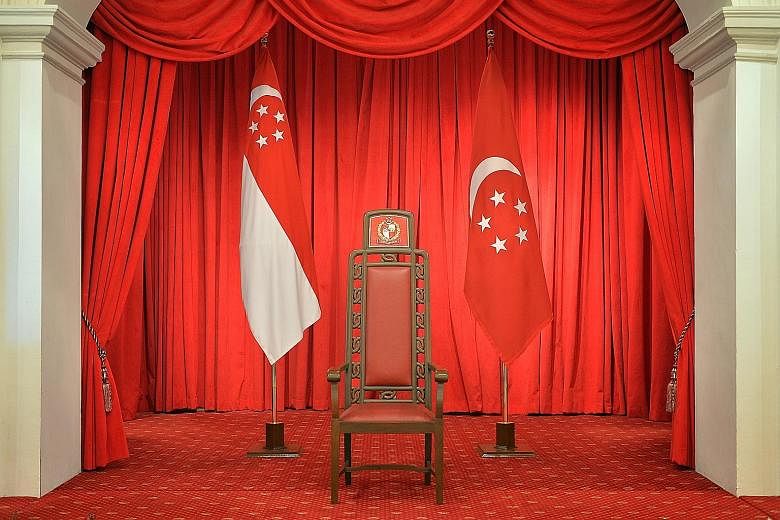Presidential hopefuls will get more time to submit their papers, and the committee that decides if they qualify to run for office will have more time to vet the applications as well.
These are two of the changes to the Presidential Elections Act proposed in Parliament yesterday.
They follow broader constitutional changes to the elected presidency passed last November, and spell out the nuts and bolts of how presidential elections will be carried out.
The deadline to apply for a certificate of eligibility will be extended to five days after the Writ of Election is issued, up from three days. This will give candidates more time to prepare their applications, which will require more information.
Additionally, Nomination Day will be at least 10 days after the Prime Minister issues the Writ of Election, up from five days. This will give the Presidential Elections Committee more time to go through applications.
MPs will debate the amendments when Parliament sits next month, and are likely to pass the Presidential Elections (Amendment) Bill in time for the upcoming election, due by the end of August.
In another change, a 16-member Community Committee will be set up to assess whether a candidate belongs to a particular racial group, to ensure the practice of reserved elections runs smoothly.
Under changes passed in November, provisions were put in place to reserve an election for members of a racial group if there has been no president from that group for the five most recent presidential terms.
The Community Committee will consist of a chairman and three five-member sub-committees for the Chinese, Malay, and Indian and other minority groups.
All who want to run for president must declare to the committee which of the three main communities they consider themselves a part of. They will be issued a certificate if the sub-committee is satisfied they belong to that community.
Every candidate must also declare their racial group in an open election, to help determine when reserved elections should happen.
A person who does not belong to the three main communities will not be issued a community certificate, but can still stand in an open election if he gets a certificate of eligibility. For example, a naturalised Singaporean of Japanese heritage might not be considered part of the Chinese, Malay or Indian and other minority communities.
Other changes will mean elections are run more efficiently. The deadline to register as an overseas voter will be extended to make it easier for overseas Singaporeans to vote. The deadline will be two calendar days after the Writ of Election is issued, instead of up until the writ is issued.
Votes will also be automatically recounted if the vote margin between the top candidate and any other candidate is 2 per cent or less of the total valid votes, to avoid unnecessary delays. Now, the 2 per cent margin allows candidates to ask for a recount.
Three other Bills were also introduced yesterday, including one proposing changes to the Parks and Trees Act. It will give National Parks Board (NParks) officers teeth to enter non-NParks premises to check the condition of trees and plants. They can now do so only if trees are in imminent danger of falling.


